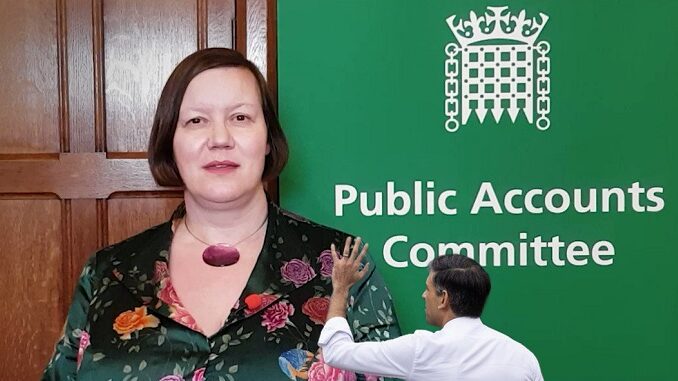
It’s that time of the year when the Public Accounts Committee (Committee of Public Accounts) add their tuppence to the Bounce Back Loan scheme via another of their House of Commons Committee reports, with recommendations to government.
The Government has two months to respond to anything they have asked, for reference the one I will be quoting is called the Forty-Fifth Report of Session 2022–23 published today the 26th of April 2023 and if you want to work your way through it, follow this link:
https://publications.parliament.uk/pa/cm5803/cmselect/cmpubacc/1254/report.html
However, here are a few things that are notable from that report, which has rattled Members of that Committee:
Lack of curiosity surrounding lenders’ performance in the Bounce Back Loan Scheme
The Bounce Back Loan Scheme (BBLS) is the largest of the Covid-19 business support loan schemes, with 1.6 million loans approved, totalling £47.4 billion.19 BBLS gave the lender a full (100%) government-backed guarantee against the outstanding balance of the facility (both capital and interest).20
The British Business Bank, one of the Department’s partner organisations, was responsible for delivering the business support loan schemes, including the BBLS.
We acknowledged in our previous report that the Department acted at speed, but left the taxpayer at risk of large losses due to fraud and error.
In order to roll the scheme out quickly, agreements allowed lenders to follow their own ‘business as usual’ procedures for monitoring, chasing payment, and identifying fraud for government backed loans.
The Department included limited requirements for lenders to collect and share data.
Lenders self-report on performance within the British Business Bank’s portal, and the Department has published data on this performance as at 31 July 2022.22
The portal was designed for administering the guarantee rather than managing the loans.
Due to lenders following their ‘business as usual’ procedures there is inconsistency in the data reported which makes interpretation difficult.
We asked the Department what actions they were taking where lenders were not performing to standard, and they told us that differences in the data were not necessarily reflective of performance differences, due to differences in circumstances and strategies.
The Department gathers information from the lenders in addition to the (notably limited) requirements in original agreements.
We had also taken evidence from NatWest, HSBC, Starling Bank and Paragon Bank.
The lenders told us that all information requested by the Department has been provided.
However, the Department has not established the full extent of the information held by lenders in order that this can be investigated further, while the banks told us they hold additional information which has not been requested.
Counter fraud activity on the Bounce Back Loan Scheme
The inadequacy of the Department’s initial fraud response on the Bounce Back Loan Scheme has been well documented, through our previous report, and the most recent NAO report on this topic. This included the lack of initial liaison with the Cabinet Office, and the lack of an appropriate in-house counter fraud function.
The Department has made progress in its fraud response. The Fraud Risk Assessment has been updated, although this identified additional fraud risks which were not considered at the point the scheme was launched.
Notably, the Department told us about the improvements which have been made to the ongoing Recovery Loan Scheme as a result of learning from the Bounce Back Loan Scheme, such as permissions for sharing data, data systems and governance, and bulk objections for dissolving companies with an outstanding loan.
However, funding for counter fraud activities remains low, with limited recoveries being made. The Department’s National Investigation Service (NATIS), a law enforcement agency partnered with the Department since September 2020, has received £13.2m in funding.
The Department told us that NATIS have 558 open investigations, recovered £5.8 million of irregular payments, and arrested 58 individuals in connection with Bounce Back Loan Scheme fraud.
The Department stated that the low level of funding for NATIS, compared to DWP’s spend on counter fraud is due to the focus on the most serious organised crime elements of fraudulent activity, and the fact that the bulk of anti-fraud work is undertaken by the lenders themselves.








